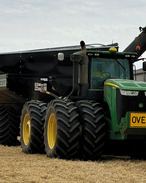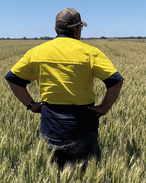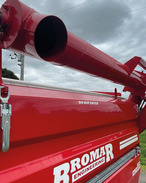This article is 5 years old. Images might not display.
These innovative technologies and more will be discussed at the Grains Research and Development Corporation (GRDC) Grains Research Update, Perth, to be held at Crown Perth on 24 and 25 February.
Jean Ristaino, of North Carolina State University, will outline the ground-breaking work her team is doing in the development of a portable technology, dubbed the ‘Plant Sniffer', that allows growers to identify plant diseases in the paddock.
Professor Ristaino and her team have developed the handheld device, which is plugged into a smartphone, and works by sampling the airborne volatile organic compounds (VOCs) that plants release through their leaves.
By measuring the type and concentration of VOCs being released by the plant, the Plant Sniffer can quickly determine, in the field, whether a plant is diseased and which disease it has.
Current disease identification techniques rely on molecular assays, which take hours to perform in a laboratory. Getting a sample to the laboratory and waiting for testing can delay disease identification by days or weeks.
"Our technology - that we are now ready to scale up - will help growers identify diseases more quickly, so they can limit the spread of the disease and related crop damage," Professor Ristaino said.
Discussing the BioScout platform will be Lewis Collins, one of the founders and chief executive officer of the company BioScout, that builds real-time airborne disease detection sensors for agriculture.
BioScout allows growers to track and monitor disease in their fields in real-time via disease sensors.
The patented sensors automatically collect and detect disease-causing particles in the air.
By detecting these particles, BioScout allows growers to gather information on the best intervention and protection practices for their crops based on the location and type of disease detected.
It uses a combination of biological air sampling, mapping and data analytics to track disease spread. The sensors are placed throughout the field, collecting disease data 24 hours a day, seven days a week.
This year, the cost of attending the two-day Grains Research Update has been reduced to encourage greater participation from industry and growers.
The maximum price will be $300, for which participants will receive two packed days of information with more than 50 presenters talking about the latest research results and innovations to assist on-farm profitability.
For more information, contact the convenor the Grain Industry Association of WA (GIWA) on (08) 6262 2128.






















